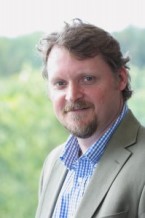Paul Bunyan
In the aftermath of the decision to leave the EU, class has been highlighted as the main cause of the referendum divide, the Labour MP Frank Field describing the result as “the first clear revolt against globalisation and its undermining of working-class living standards”. Alongside class a clear contrast is also being drawn between the urban and the rural. Under the heading “A less than United Kingdom’, Mark Easton, BBC social affairs correspondent commented:
“The maps of how people voted show that this was a victory for the countryside over the cities, particularly in England. London, Manchester, Bristol, Leicester, Leeds and Liverpool – for the most part, the metropolitan centres voted to remain. But the further from the big city centres one travels, the more emphatically people voted to leave”.
We need to be careful in applying too simplistic an analysis about city and non-city dwellers but the result of the referendum does raise profound questions about the nature of place, diversity, otherness and how people who are different live and work alongside each other. As we move forward into an uncertain future it is clear that cities, more than ever, are going to have to lead the way in modelling new ways of thinking about how, in an ever more complex and diverse world, we imagine our futures to be. According to sociologist and philosopher, Richard Sennett (2011), cities have the potential to make us more complex human beings. Learning to live with strangers, encountering diversity, entering into the experiences and interests of unfamiliar lives, represent for Sennett dimensions which shape people’s capabilities of dealing with complexity.
In thinking about the quality of life in cities, Sennett says:
“My own view can be stated simply: the quality of life in cities is good when its inhabitants are capable of dealing with complexity. Conversely, the quality of life in cities is bad when its inhabitants are capable of only dealing with people like themselves. Put another way, a healthy city can embrace and make productive use of the differences of class, ethnicity and lifestyles it contains, while a sick city cannot; the sick city isolates and segregates difference, drawing no collective strength from its mixture of different people”.
These themes are explored in my article entitled ‘Regenerating the City: People, Politics, Power and the Public Sphere’. Drawing upon Sennett I argue that becoming more complex as human beings involves working out solutions to problems and issues alongside others who are different but share common concerns and experiences. In particular the work of London Citizens in bringing together diverse institutions to work and campaign together for social and political change is highlighted. Over the past decade London Citizens has successfully developed a number of high profile campaigns, most notably the Living wage campaign but also other initiatives around affordable housing, jobs, street safety and welcoming refugees.
Building upon the model developed in London, people in local institutions in other cities including Nottingham, Birmingham, Leeds, Cardiff and Glasgow are currently working to establish similar strategies for urban change.
Bunyan, Paul. “Regenerating the city: People, politics, power and the public sphere.” Local Government Studies 41.3 (2015): 362-378.
http://www.tandfonline.com/doi/abs/10.1080/03003930.2014.982109

Paul Bunyan has spent sixteen years in various development roles in the voluntary and community sector in East London and the statutory sector in Cumbria. Between 1996 and 2003, he helped to establish and develop ‘The East London Communities Organisation’ (TELCO), forerunner to ‘London Citizens’, now the largest citizen-based organisation in the United Kingdom campaigning for social justice on a multi-issue agenda. Paul moved into Higher Education in 2007 working at Universities of Cumbria and Glasgow before joining Edge Hill in September 2010.
https://www.edgehill.ac.uk/socialsciences/about/staff/paul-bunyan/